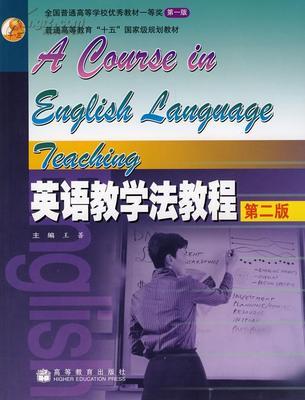有点长是不是?可是值得一读的好文章还怕长吗?读英文同样需要培养长篇阅读的能力,我选了一些很精彩的句子,标记出来,可以先看这部分!
by Linyutang
It is to be assumed that ifman were to live this life like a poem, he would be able to lookupon the sunset of his life as his happiest period, and instead oftrying to postpone the much feared old age, be able actually tolook forward to it, and gradually build up to it as the best andhappiest period of his existence. In my efforts to compareand contrast Eastern and Western life, I have found no differencesthat are absolute except in this matter of the attitude towardsage, which is sharp and clear-cut and permits of no intermediatepositions. The differences in our attitude towards sex, towardwomen, and toward work, play and achievement are all relative. Therelationship between husband and wife in China is not essentiallydifferent from that in the west, nor even the relationship betweenparent and child. Not even the ideas of individual liberty anddemocracy and the relationship between the people and their rulerare, after all, so different. Butin the matter of our attitude toward age, the difference isabsolute, and the East and the West take exactly opposite points ofview.
This is clearest in the matter of asking about a person's age ortelling one's own. In China, the first question a person asks theother on an official call, after asking about his name and surnameis, "What is your glorious age?" If the person repliesapologetically that he is twenty-three or twenty-eight, the otherparty generally comforts him by saying that he has still a gloriousfuture, and that one day he may become old. But if the personreplies that he is thirty-five or thirty-eight, the other partyimmediately exclaims with deep respect, " Good luck!"; enthusiasmgrows in proportion as the gentleman is able to report higher andhigher age, and if the person is anywhere over fifty, the inquirerimmediately drops his voice in humility and respect.
That is why all old people, ifthey can, should go and live in China, where even a beggar with awhite beard is treated with extra kindness.People in middle age actually look forward to the time when theycan celebrate their fifty-first birthday, and in the case ofsuccessful merchants or officials, they would celebrate even theirforty-first birthday with great pomp and glory. But the fifty-firstbirthday, or the half century mark, is an occasion of rejoicing forpeople of all classes. The sixty-first is a happier and granderoccasion than the fifty-first and the seventy-first is stillhappier and grander, while a man able to celebrate his eighty-firstbirthday is actually looked upon as one specially favored byheaven. The wearing of a beard becomes the special prerogative ofthose who have become grandparents, and a man doing so without thenecessary qualifications, either of being a grandfather or being onthe other side of fifty, stands in danger of being sneered atbehind his back. The result is that young men try to passthemselves off as older than they are by imitating the pose anddignity and point of view of the older people, and I have knownyoung Chinese writers graduated from the middle schools, anywherebetween twenty-one and twenty-five, writing articles in themagazines to advise what " the young men ought and ought not toread," and discussing the pitfalls of youth with a fatherlycondescension.
This desire to grow old and in any case appear old isunderstandable when one understands the premium generally placedupon old age in China. In the first place, it is a privilege of theold people to talk, while the young must listen and hold theirtongue. " A young man is supposed to have ears and no mouth," as aChinese saying goes. Men of twenty are supposed to listen whenpeople of thirty are talking, and these in turn are supposed tolisten when men of forty are talking. As the desire to talk and tobe listened to is almost universal, it is evident that the furtheralong one gets in years, the better chance he has to talk and to belistened to when he goes about in society.
It is a game of life in which no one is favored, for everyone has achance of becoming old in his time. Thus a father lecturing his sonis obliged to stop suddenly and change his demeanor the moment thegrandmother's place. And it is quite fair, for what right have theyoung to open their mouths when the old men can say " I havecrossed more bridge than you have crossed streets!"
In spite of my acquaintance with Western life and the Westernattitude age, I am still continually shocked by certain expressionsfor which I am totally unprepared. Fresh illustrations of thisattitude come up on every side. I have heard an old lady remarkthat she has had several grandchildren, but, " It was the first onethat hurt." With the full knowledge that American people hate to bethought of as old, one still doesn't quite expect to have it putthat way. I have made allowance for people in middle age this sideof fifty, who, I can understand, wish to leave the impression thatthey are still active and vigorous, but I am not quite prepared tomeet an old lady with gray hair facetiously switching the topic ofconversation to the weather when the conversation without any faultof mine naturally drifted toward her age. One continually forgetsit when allowing an old man to enter an elevator or a car first;the habitual expression " after age" comes up to my lips, then Irestrain myself and am at a loss for what to say in its place. Oneday, being forgetful, I blurted out the usual phrase in deferenceto an extremely dignified and charming old man, and the old manseated in the car turned to his wife and remarked jokingly to her," This young man has the cheek to think that he is younger thanmyself!"
The whole thing is as senseless ascan be. I can understand young and middle-aged unmarried womenrefusing to tell their age, because there the premium upon youth isentirely natural. Chinese girls, too, get a little scared when theyreach twenty-two and are not married or engaged. The years areslipping by mercilessly. There is a feeling of fear of being leftout, what the Germans call a Torschlusspanik (gate-shutpanic), the fear of being left in the park when the gates close atnight. Hence it has been said that the longest year of a woman'slife is when she is twenty-nine; she remains twenty-nine for threeor four or five years. But apart from this, the fear of lettingpeople know one's age is nonsensical. How canone be thought wise unless one is thought to be old? And what dothe young really know about life, about marriage, and about thetrue values?
Again I can understand that the whole pattern of Western lifeplaces a premium on youth and therefore makes men and women shrinkfrom telling their age. A perfectly efficient and vigorous womansecretary of forty-five is, by a curious twist of reasoning,immediately thought of as worthless when her age becomes known.What wonder that she wants to hide her age in order to keep herjob? But then the pattern of life itself and this premium placedupon youth are nonsensical. This sort of thing is undoubtedlybrought about by business life, for I have no doubt there must bemore respect for old age in the home than in the office, I see noway out of it until the American people begin somewhat to despisework and efficiency and achievement. I suspect when an Americanfather looks upon the home and not the office as his ideal place inlife, and can openly tell people, as Chinese parents do withabsolute equanimity, that now he has a good son taking his placeand is honored to be fed by him, he will be anxiously lookingforward to that happy time, and will count the years impatientlybefore he reaches fifty.
It seems a linguistic misfortunethat hale and hearty old men in America tell people that they are"young," or are told that they are " young," when really what ismeant is that they are healthy. To enjoy healthin old age, or to be "old and healthy" is the greatest of humanluck, but to call it " healthy and young" is but to detract fromthat glamour and impute imperfection to what is really perfect.After all, there is nothing more beautiful in this world than ahealthy wise old man, with "ruddy cheeks and white hair," talkingin a soothing voice about life as one who knows it. The Chineserealize this, and have always pictured an old man with " ruddycheeks and white hair" as the symbol of ultimate earthly happiness.Many Americans must have seen Chinese pictures of the god ofLongevity, with his high forehead, his ruddy face, his white beard- and how he smiles! The picture is so vivid. He runs his fingersthrough the thin flowing beard coming down to the breast and gentlystrokes it in peace and contentment, dignified because he issurrounded with respect, self-assured because no one ever questionshis wisdom, and kind because he has seen so much of human sorrow.To persons of great vitality, we also pay the compliment of sayingthat "the older they grow, the more vigorous they are."
On the whole, I find grand old men with white beards missing in theAmerican picture. I know that they exist, but they are perhaps in aconspiracy to hide themselves from me. Only once, in New Jersey,did I meet an old man with anything like a respectable beard.Perhaps it is the safety razor that has done it, a process asdeplorable and ignorant and stupid as the deforestation of theChinese hills by ignorant farmers, who have deprived North China ofits beautiful forests and left the hills as bald and ugly as theAmerican old men's chins. There is yet a mine to be discovered inAmerica, a mine of beauty and wisdom that is pleasing to the eyeand thrilling to the soul, when the American has opened his eyes toit and starts a general program of reclamation andreforestation.
Gone are the grand old men of America! Gone is Uncle Sam with hisgoatee, for he has taken a safety razor and shaved it off, to makehimself look like a frivolous young fool with his chin sticking outinstead of being drawn in gracefully, and a hard glint shiningbehind horn-rimmed spectacles. What a poor substitute that is forthe grand old figure!
I have no doubt that the fact that the old men of America stillinsist on being so busy and active can be directly traced toindividualism carried to a foolish extent. It is their pride andtheir love of independence and their shame of being dependent upontheir children. But among the manyhuman rights the American people have provided for in theirConstitution, they have strangely forgotten about the right to befed by their children, for it is a right and an obligation growingout of service. How can anyone deny thatparents who have toiled for their children in their youth, havelost many a good night's sleep when they are ill, have washed theirdiapers long before they could talk, and have spent about a quarterof century bringing them up and fitting them for life, have theright to be fed by them and loved and respected when they are old?Can one not forget the individual and his pride of self in ageneral scheme of home life in which men are justly taken care ofby their parents and, having in turn taken care of their children,are also justly taken care of by the latter? The Chinese have notgot the sense of individual independence because the wholeconception of life is based upon mutual help within the home; hencethere is no shame attached to circumstance of one's being served byhis children in the sunset of one's life. Rather it is consideredgood luck to have children who can take care of one. One lives fornothing else in China.
In the West, the old people efface themselves and prefer to livealone in some hotel with a restaurant on the ground floor, out ofconsideration for their children and an entirely unselfish desirenot to interfere in their home life. But the old people have a right to interfereand if interference is unpleasant, it is nevertheless natural, forall life, particularly the domestic life, is a lesson inrestraint. Parents interfere with theirchildren when they are young, and the logic ofnon-interference is already seen in the results of theBehaviorists, who think that all children should be taken away fromtheir parents. If one cannot tolerate one's own parents when theyare old and comparatively helpless, parents who have done so muchfor us, whom else can one tolerate in the home? One has to learnself-restraint anyway, or even marriage will go on the rocks. Andhow can the personal service and devotion and adoration of lovingchildren ever be replaced by the best hotel waiters?
The Chinese idea supporting this personal service to old parents isexpressly defended on the sole ground of gratitude. The debts to one's friends may be numbered,but the debts to one's parents are beyondnumber. Again and again, Chinese essays onfilial piety mention the fact of washing diaper, which takes onsignificance when one becomes a parent himself. In return,therefore, is it not right that in their old age, the parentsshould be served with the best food and have their favorite dishesplaced before them? The duties of a son serving his parents arepretty hard, but it is sacrilege to make a comparison betweennursing one's own parents and nursing a stranger in a hospital. Forinstance, the following are some of the duties of the junior athome, as prescribed by T'u Hsishih and incorporated in a book ofmoral instruction very popular as a text in the oldschools:
In the summer months, one should, while attending to his parents,stand by their side and fan them, to drive away the heat and theflies and mosquitoes. In winter, he should see that the bed quiltsare warm enough and the stove fire is hot enough, and see that itis just right by attending to it constantly. He should also see ifthere are holes or crevices in the doors and windows, that theremay be no draft, to the end that his parents are comfortable andhappy.
A child above ten should get up before his parents in the morning,and go to their bed and ask if they have had a good night. If hisparents have already gotten up, he should first curtsy to thembefore inquiring after their health, and should retire with anothercurtsy after the question. Before going to bed at night, he shouldprepare the bed, when the parents are going to sleep, and stand byuntil he sees that they have fallen off to sleep, and then pulldown the bed curtain and retire himself.
Who, therefore, wouldn't want to be an old man or an old father orgrandfather in China? This sort of thing is very much laughed at bythe proletarian writers of China as "feudalistic," but there is acharm to it which makes any old gentleman inland cling to it andthink that modern China is going to the dogs. The important pointis that every man grows old in time, if he lives long enough, as hecertainly desires to. If one forgets this foolish individualismwhich seems to assume that an individual can exist in the abstractand be literally independent, one must admit that we must so planour pattern of life that the golden period lies ahead in old ageand not behind us in youth and innocence. For if we take thereverse attitude, we are committed without our knowing to a racewith the merciless course of time, forever afraid of what liesahead of us - a race, it is hardly necessary to point out, which isquite hopeless and in which we are eventually all defeated.No one can really stop growingold; he can only cheat himself by not admitting that he is growingold. And since there is no use fighting against nature, one mightjust as well grow old gracefully. The symphony of life should endwith a grand finale of peace and serenity and material comfort andspiritual contentment, and not with the crash of a broken drum orcracked cymbals.
 爱华网
爱华网



